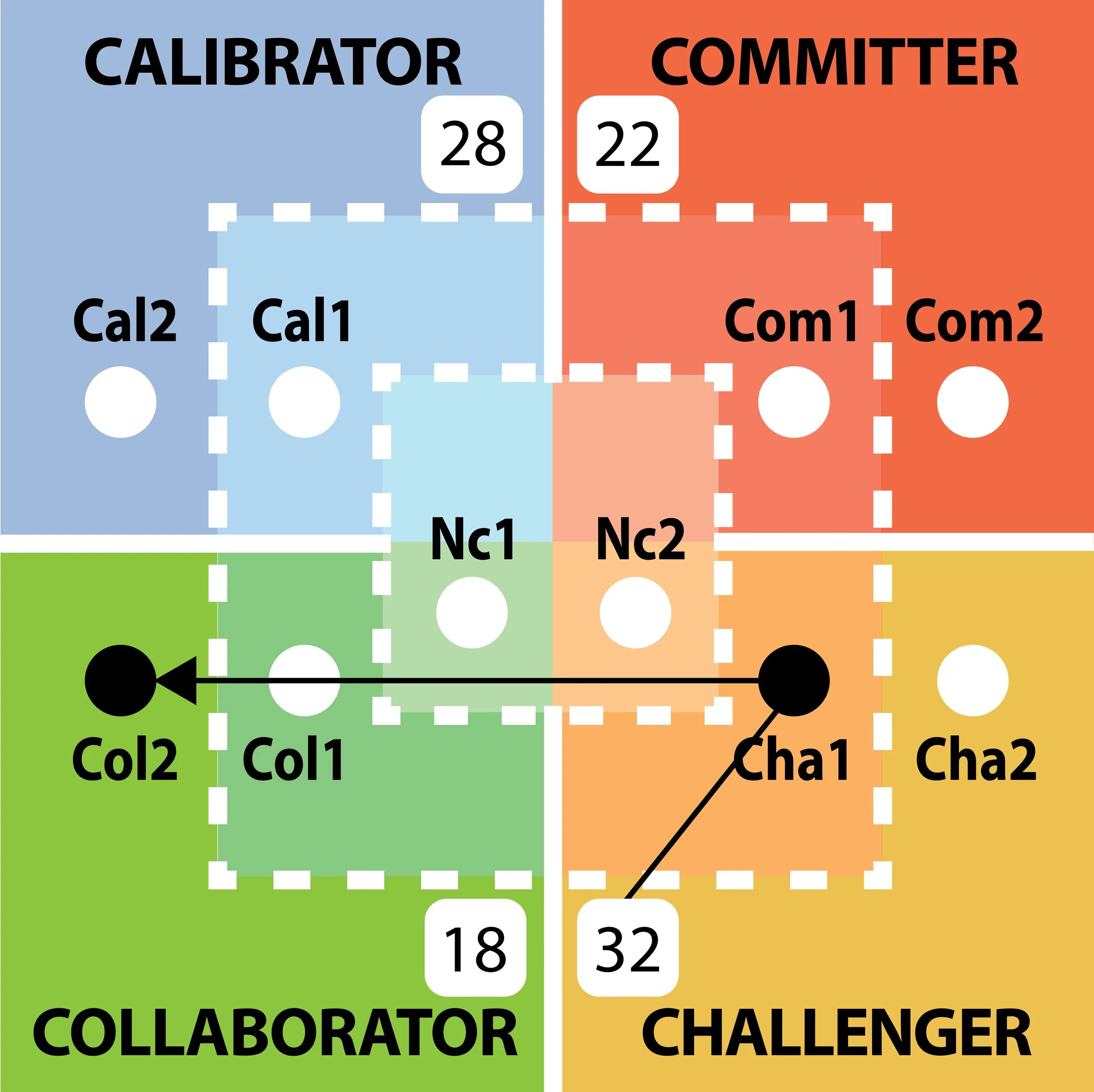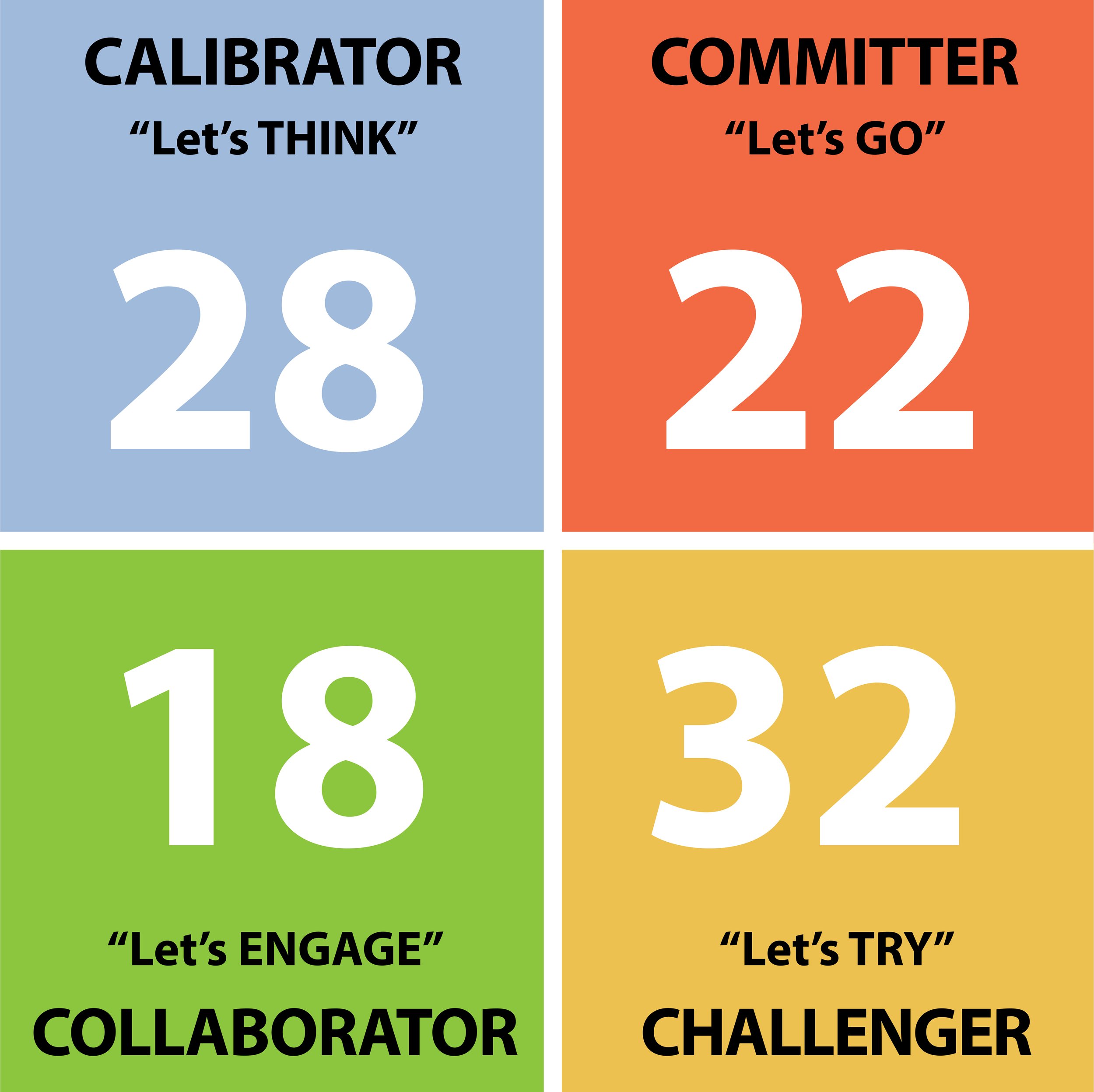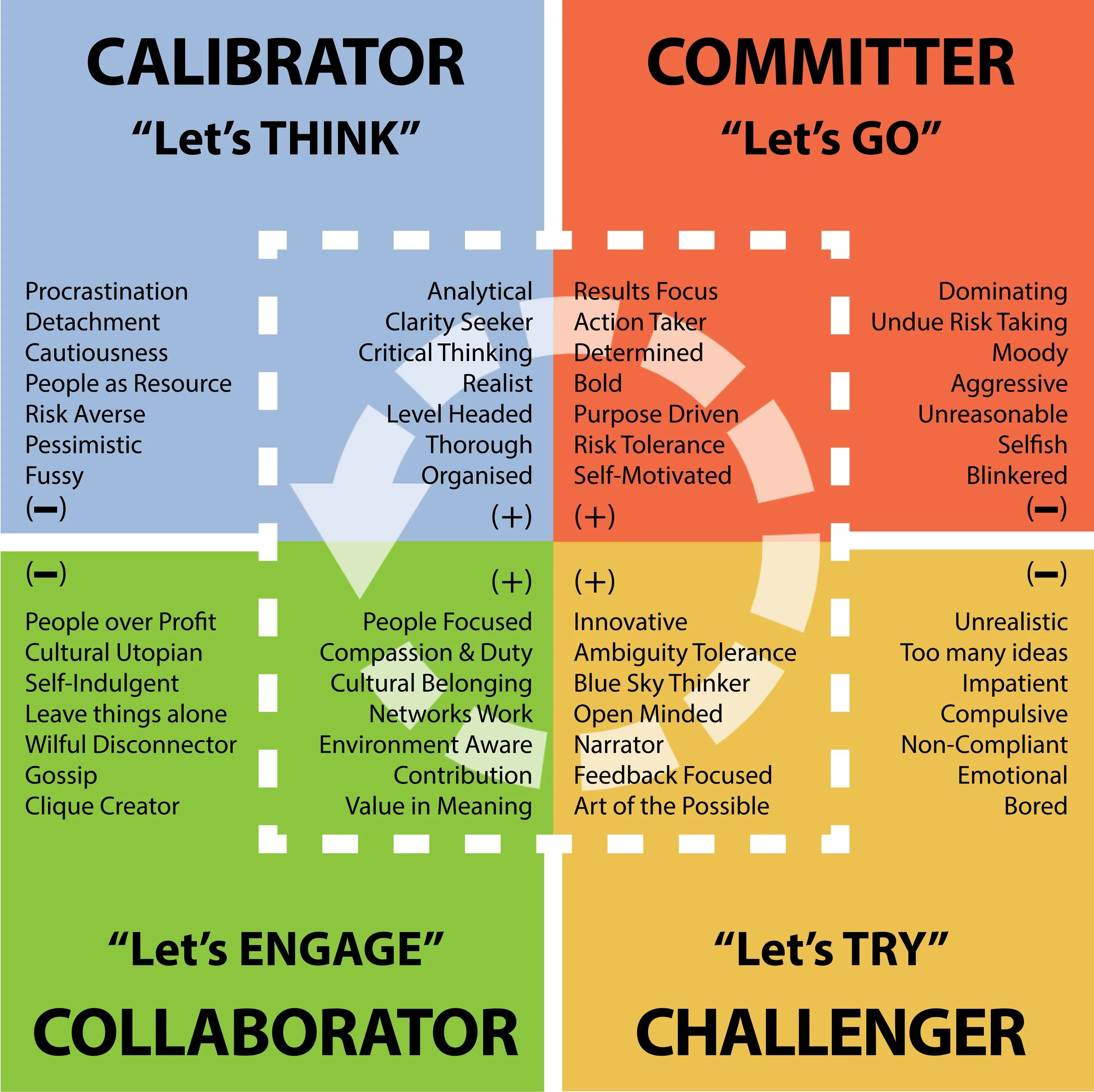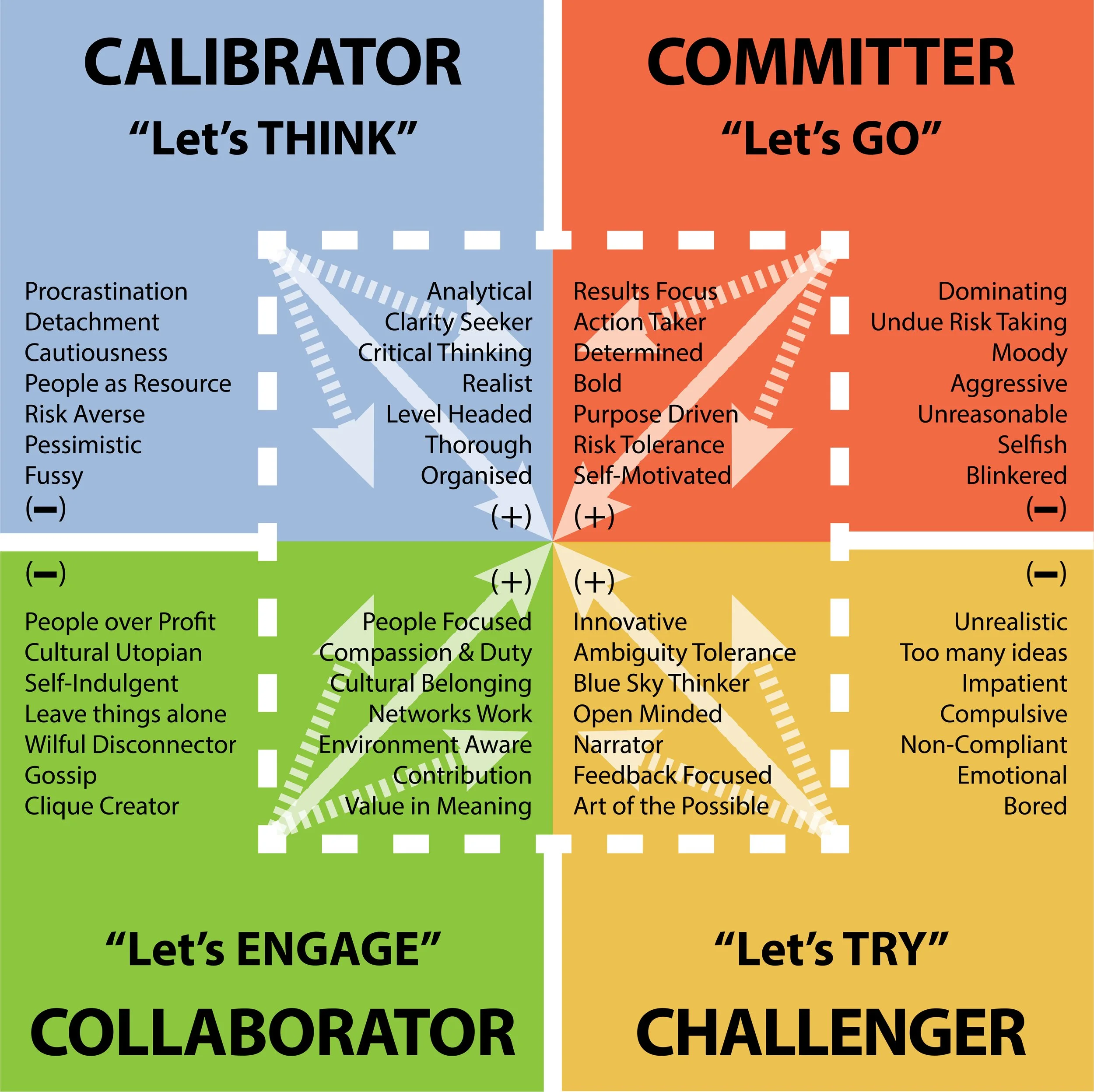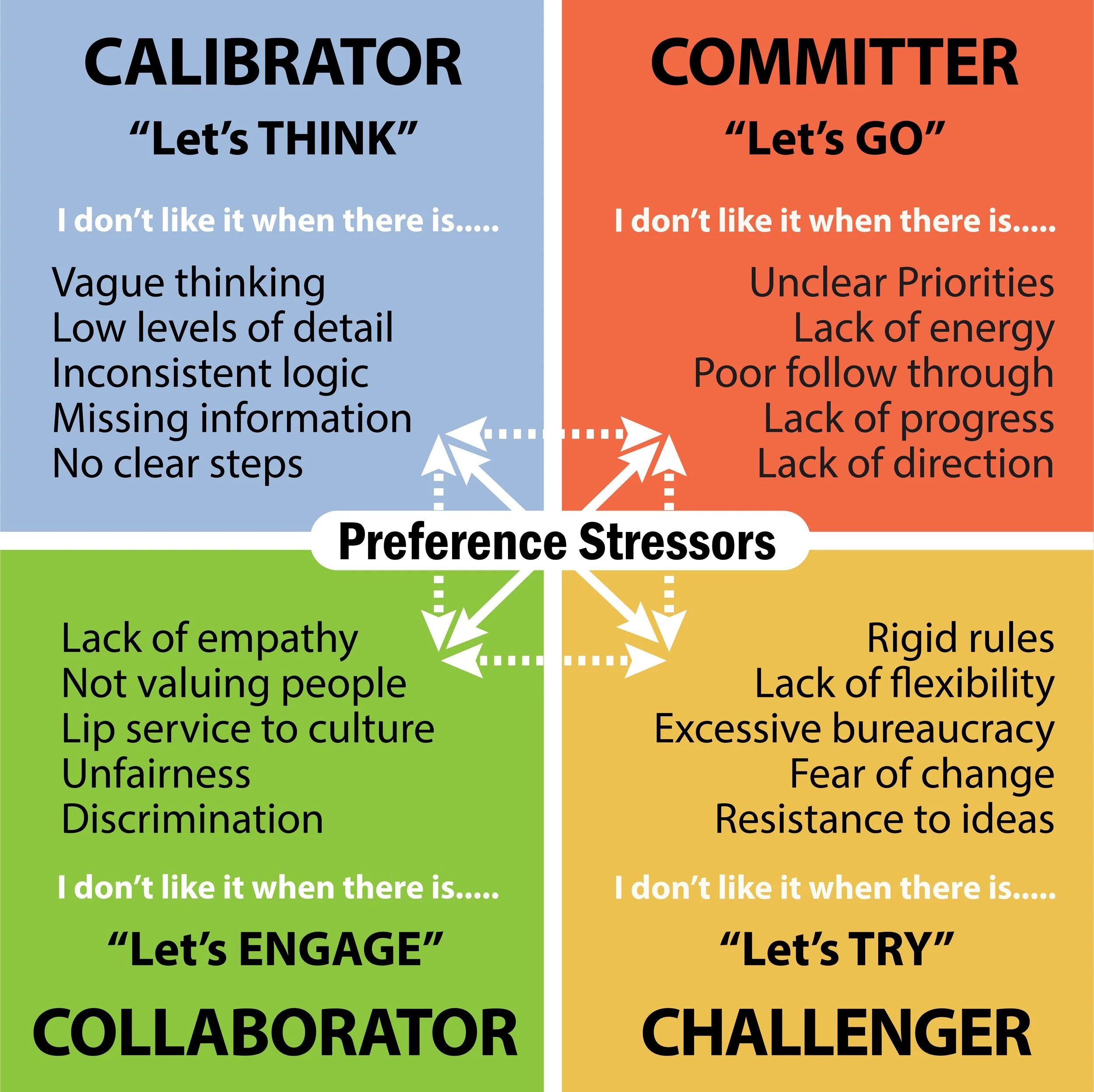
It’s complexity is in it’s simplicity.
Get to know Context4.
The Context4 profile does not generate an individual customised profile.
The reason for this is two main reasons ‘negative reinforcement’ and ‘learning transfer’.
We find that many reports are written to present things as mainly positive with negatives being offered as ‘something to think about’. In our experience this has a tendency to give, in particular high performers a belief that even the ‘things they should consider’ are actually things that work for them.
In terms of ‘learning’, we noticed that most people don’t remember much about a tool, other than what they took from the initial overview. We think this is because they haven’t learned about the tool, but rather read the highlights. With Context4 you have to read about the behaviours to understand your scores. This embeds learning.
4 x Preference Behaviours: Calibrator, Committer, Collaborator, Challenger.
There are 19,871 possible scoring combinations for Context4.
We believe these 4 behaviour preferences are the most demonstrative of success individually and as a team.
Calibrator = Levels to which an individual thinks, reflect and analyses.
Committer = The focus on action, output and targets.
Collaborator = The importance of others, team and culture.
Challenger = The willingness to be curious, adapt and even disrupt.
A profile that shows you at your BEST and WORSE when under stress.
Where an individual profile gives you a deep insight into your everyday behaviours and how they can operate at their best and worst in normal conditions. Then the Stress profile tells you what happens to you when you feel some type of anxiety, doubt, stress (with a small ‘s’) and when you are under direct tangible Stress (with a big ‘S’).
The Stress profile shows you, your normative behaviour and then what happens when you get stressed in some way, what ever that may be.
This is a fabulous visual representation of the difference between how we think we might be coming across, versus the reality of how we are being experienced.
This really enables individuals and teams to deeply understand the reality of their impact as opposed to just what is intended.
Working inside the box!
A key differential with Context4 is the drive to work with all 4 preferences, whilst acknowledging your own.
In the real world you are judged by the experience others have of you in the context they experience you.
The value in knowing your score is that you can understand your preference, and focus on the personal characteristics that you value and put effort into those that you want to develop and enhance.
To make this valuable in life the focus is, your ability to pull on the positive behaviours that the 4 behavioural preferences offer, and become increasing well rounded as opposed to the single focus of ones own preference.
This becomes increasingly more important when using Context4 with teams, where personal preference is relevant. However the context of the entire team and the agreement to focus on universally agreed positive behaviours creates a standard everyone can focus on and be held to.

